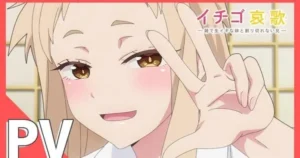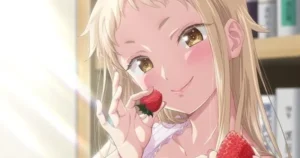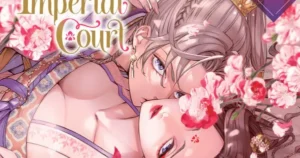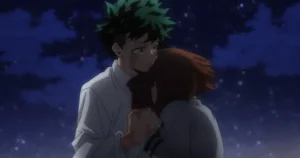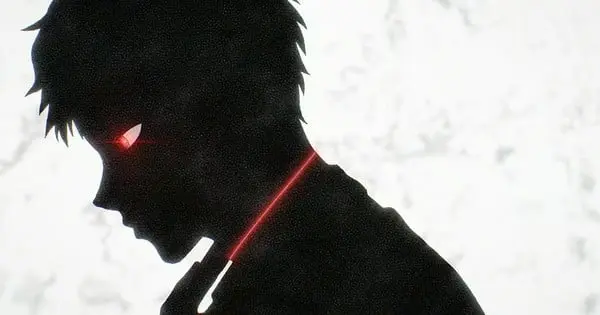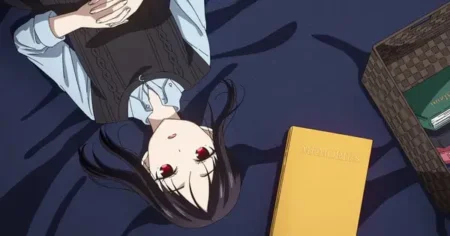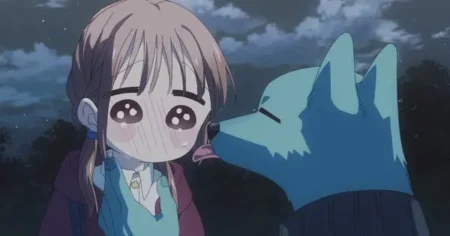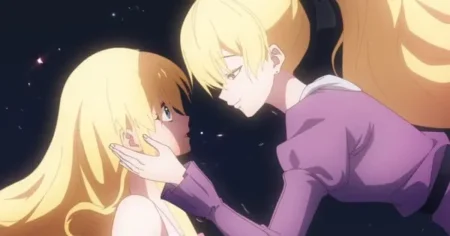The eerie and compelling supernatural horror series, The Summer Hikaru Died, continued its first season with Episode 11, titled “Indou’s Door” or “Indo’s Sin,” which aired on September 20, 2025. This pivotal episode plunges deeper into the dark history of the remote village, unraveling long-held secrets and intensely developing the complex relationship between Yoshiki and the entity inhabiting his best friend, Hikaru. Viewers were met with startling revelations and a dramatic shift in Hikaru’s manifestation, further heightening the series’ signature atmospheric horror.
Plot Summary: Unraveling “Indo’s Door”
Episode 11 intricately weaves together past and present, focusing on Yoshiki’s desperate search for answers and Hikaru’s ongoing struggle with his monstrous nature. The narrative largely revolves around a crucial conversation that unearths the deeply disturbing origins of the village’s supernatural ties.
Yoshiki’s Quest for Truth
Driven by the escalating mysteries and the growing danger surrounding Hikaru, Yoshiki takes a significant step by confronting his father, Toshinori, something he hasn’t initiated in years. Their discussion, joined by Hikaru’s father, Kohei, hesitantly delves into the “old traditions” they had hoped wouldn’t be passed down to their sons. Through this dialogue, the episode reveals the “Indo family’s sin” – a horrifying pact made long ago.
According to the tale, an ancient Indo leader, devastated by the loss of his wife, implored the mountain god to resurrect her, promising human heads in exchange for the Indo family’s protection. While his wife was briefly revived, a third of the village mysteriously perished, losing their heads. The head kept in their shrine, known as “Hichi-san,” is revealed to be her head, and every five years, the Indo family returns to the mountain with Hichi-san to entreat the god to remain there. This revelation directly connects to Hikaru’s grandfather’s past remarks and hints at the true fate of villagers previously thought to have died of starvation. Yoshiki, however, notes inconsistencies in the story, suggesting that the full truth remains hidden.
Hikaru’s Transformation and Emerging Humanity
Meanwhile, Hikaru experiences a terrifying and abrupt physical transformation. While walking through the school hallway with Yoshiki, his eyes drastically change, and something ominous oozes from his neck as he menacingly approaches Yoshiki. This drastic shift shocks viewers and Yoshiki alike, as Hikaru momentarily loses all semblance of his original form.
Despite these monstrous manifestations, the episode also highlights Hikaru’s growing humanity. He expresses worry about being a danger to Yoshiki and contemplates returning to the mountain to ensure everyone’s safety. He admits his monstrous nature but desperately desires not to be alone, crying at Kurebayashi’s table. His developing feelings for Yoshiki are undeniable, as he clearly cares deeply for him, wanting to be by his side despite the risks. This push and pull between his otherworldly instincts and his human emotions, particularly those tied to Yoshiki, showcases his significant character development.
Key Revelations and Theories
Episode 11 serves as a crucial turning point, transforming the atmospheric horror into a more explicit murder mystery, albeit briefly. The uncovering of the “Indo family’s sin” and the tale of Hichi-san suggests a deep, ancient curse or ongoing supernatural influence that directly impacts the current generation. The parallels drawn between Hikaru’s father, Kohei, who opposed the village practices and met a mysterious death, and Hikaru’s own potential fate, create a sense of foreboding.
Further intriguing details emerge, including a Renaissance-era drawing by “Rafanelli” depicting Gehenna (a Biblical term for hell), which bears a striking resemblance to the entities in the story. This raises questions about whether Hikaru’s presence is linked to Christian refugees in the mountain or if he is an even older entity than the Nonuki-sama legend implies. The mystery surrounding these historical and mythological connections suggests a much larger, global scope to the supernatural occurrences than previously imagined.
Character Development in Episode 11
Both Yoshiki and Hikaru undergo significant character development. Yoshiki’s determination to uncover the truth, even from his reluctant father, shows his growing courage and commitment to understanding the supernatural events. His sympathy for the monsters deepens as he learns the tragic origins of the Indo family’s sin, making him feel less like an outsider himself.
Hikaru, despite his terrifying transformation, becomes “more human than ever before.” His reluctance to be alone and his genuine care for Yoshiki and the townsfolk demonstrate his burgeoning understanding and appreciation for human connection. The episode powerfully conveys that Hikaru now accepts himself, and in turn, Yoshiki accepts him for who and what he is, moving beyond projecting his nostalgia for the original Hikaru. This mutual acceptance is a cornerstone of their evolving relationship.
Critical Reception and Fan Reactions
Episode 11 garnered strong reactions from viewers and critics alike. Many fans expressed genuine fear and shock at Hikaru’s sudden and grotesque transformation, with comments like “I literally let out a scream” circulating online. The episode was praised for its ability to deliver effective horror without relying on jump scares, instead leveraging its atmospheric tension and psychological depth. Reviewers noted the intimate drama and effective scares, even while pointing out that some exposition dumps felt heavy. The episode’s deep dive into the Indo family’s history and the continuous development of Hikaru and Yoshiki’s bond solidified its importance leading into the finale.
Looking Ahead to the Finale
As one of the penultimate episodes in the 12-episode first season, “Indou’s Door” sets a suspenseful stage for the finale. While many questions were answered, even more loose ends remain, including the ultimate fate of Hikaru and Yoshiki and the resolution of the ancient curse afflicting the village. The emotional and supernatural stakes have never been higher, promising a climactic conclusion to this unsettling tale of friendship, identity, and horror.

